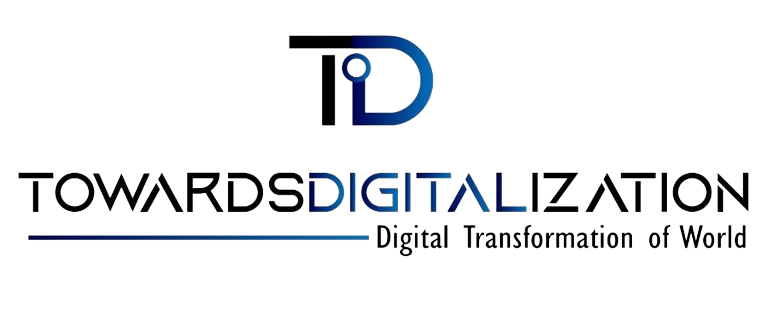Introduction
As we fast approach the year 2025, the impact of digitalization on our daily lives continues to evolve. Our attitudes towards technology have shaped the way we interact, work, and play in this modern age. Consequently, we have become more efficient in our daily tasks. Additionally, we have developed new forms of communication that have connected us globally. Moreover, technology has revolutionized industries, creating new opportunities for innovation and growth.

From smart homes to wearable tech, the digital landscape has transformed how we connect with the world around us. As we navigate this digital era, understanding and adapting to the changes brought about by technology is essential. In this article, we will explore the various attitudes towards the impact of digitalization on our daily lives in 2025, shedding light on the opportunities and challenges that lie ahead.
The Digital Transformation
In the year 2025, the impact of digitalization on daily lives has become more apparent than ever before. With the rapid advancements in technology, every aspect of life has been touched by digital transformation. From communication to entertainment, work, and even shopping, digitalization has significantly altered the way we live our lives.
Understanding the Scope of Digitalization
Digitalization encompasses the use of digital technologies to change a business model and provide new revenue and value-producing opportunities. We use devices like smartphones, tablets, and laptops to access information, communicate, and perform tasks that once required physical effort. The scope of digitalization is vast, impacting everything from how we consume media to how we manage our finances.
The Shift in Daily Activities
As digitalization continues to evolve, the shift in daily activities becomes more pronounced. In 2025, people rely heavily on technology for tasks such as online shopping, virtual meetings, remote work, and entertainment streaming. The convenience of digital tools has made it easier for individuals to stay connected, informed, and productive. However, this shift also raises concerns about privacy, security, and the potential negative effects of excessive screen time.
Digitalization in 2025 impacts our lives with opportunities and challenges that require adaptation to the digital future.

The Positive Impacts of Digitalization
In 2025, attitudes towards the impact of digitalization on daily lives are largely positive. People have come to recognize the numerous benefits that technology and digital tools bring to their daily routines. From increased connectivity to improved efficiency, digitalization has truly transformed the way we live and work.
Enhanced Connectivity and Communication
Digitalization has revolutionized the way we connect and communicate with others. In 2025, individuals have access to various platforms and devices that enable seamless communication with people from all around the world. Social media, messaging apps, and video conferencing tools have made it easier than ever to stay in touch with friends, family, and colleagues.
Improved connectivity has created a global community, enabling people to build relationships without geographic limitations.
Access to Information and Education
One of the most significant positive impacts of digitalization is the increased access to information and education. With the wealth of knowledge available online, individuals in 2025 have the opportunity to learn about any topic that interests them.
Digitalization has democratized education, making it more accessible and affordable for individuals of all backgrounds.
Improved Efficiency in Daily Tasks
Digital tools have streamlined daily tasks and routines for individuals in 2025. From scheduling appointments to managing finances, digitalization has made it easier to stay organized and efficient. Task management apps, digital calendars, and online banking services have simplified everyday activities, allowing people to focus their time and energy on more meaningful pursuits. The automation of certain tasks has also alleviated stress and freed up time for individuals to pursue their passions and hobbies.
In conclusion, the positive impacts of digitalization on daily lives in 2025 are undeniable. Technology has improved our lives in various ways, from enhanced connectivity to increased efficiency.
The Negative Aspects of Digitalization
In 2025, the impact of digitalization on daily lives has not been all positive. While the advancements in technology have brought convenience and efficiency, there are also negative aspects that should not be overlooked.

Privacy Concerns and Data Security
One of the major concerns surrounding digitalization is the issue of privacy and data security. With the increasing amount of personal information being shared online, there is a growing risk of data breaches and cyber-attacks. Data protection is crucial in 2025, but technology keeps evolving, making it harder to stay ahead of threats. It is crucial for individuals to take proactive measures to safeguard their privacy and secure their personal information.
The Digital Divide and Inequality
Another negative aspect of digitalization in 2025 is the widening gap between those who have access to technology and those who do not. This disparity, known as the digital divide, creates inequalities in education, employment opportunities, and overall quality of life. Those who are unable to keep up with the fast-paced digital world are at a disadvantage, leading to further marginalization and exclusion. It is imperative for society to address this issue and work towards bridging the digital divide to ensure equal opportunities for all individuals.
Impact on Mental Health
The constant presence of digital devices and the pressure to always be connected can have a negative impact on mental health. In 2025, individuals are increasingly experiencing symptoms of digital burnout, anxiety, and depression due to the overwhelming nature of digitalization. The blurred boundaries between work and personal life, the pressure to maintain a certain online image, and the addiction to social media are contributing to a decline in mental well-being. It is essential for individuals to be mindful of their digital consumption and prioritize their mental health by setting boundaries and taking breaks from technology.
Adapting to the Digital Age
In 2025, the impact of digitalization on daily lives continues to evolve rapidly. People are more connected than ever before, with the use of smartphones, social media, and various digital platforms becoming an integral part of daily routines. As a result, individuals are constantly adapting to the changes brought about by the digital age.
Embracing Change and Overcoming Challenges
With the fast-paced nature of technological advancements, it is essential to embrace change and be open to learning new tools and platforms. While the digital age brings convenience and efficiency to our daily lives, it also presents its own set of challenges. From information overload to privacy concerns, individuals need to navigate through these obstacles to fully benefit from digitalization.
In 2025, attitudes towards the impact of digitalization are shifting towards a more proactive approach. People are not only acknowledging the benefits of digital tools but also actively seeking ways to overcome challenges that come with them. By staying informed and being willing to adapt to changing circumstances, individuals can effectively navigate the digital landscape and make the most out of the opportunities it presents.
Strategies for Safe and Effective Digital Use
To ensure safe and effective digital use in 2025, it is crucial to prioritize cybersecurity and privacy. Practicing good digital hygiene, such as using strong passwords, enabling two-factor authentication, and being cautious of phishing attempts, can help protect personal information and data from potential threats. Additionally, being mindful of the time spent on digital devices and setting boundaries for screen time can promote a healthy balance between online and offline activities. By adopting these strategies, individuals can make the most of the digital age while safeguarding their well-being.
Conclusion:
In conclusion, the impact of digitalization on daily lives in 2025 is undeniable. With technology becoming more integrated into every aspect of our lives, it is essential to adapt and embrace the changes. Digital technology has benefits, but we must be mindful of negative effects like increased screen time and privacy concerns. By staying informed, setting boundaries, and utilizing technology responsibly, individuals can navigate the digital landscape successfully. Embracing a balanced approach towards digitalization in 2025 can lead to a more fulfilling and enriching daily life experience.
Frequently Asked Questions
Question 1. What is the focus of “Navigating Digitalization: 2025 Attitudes & Impacts”?
- The focus is on understanding how attitudes toward digitalization are evolving in 2025, and what impacts these changes will have on businesses, industries, and society.
Question 2. Why is digitalization important in 2025?
- Digitalization in 2025 is crucial as it drives innovation, improves efficiency, and creates new opportunities for growth across various sectors.
Question 3. How are businesses responding to digitalization in 2025?
- Businesses are increasingly adopting digital tools, automation, and AI technologies to stay competitive, streamline operations, and enhance customer experiences.
Question 4. What are the main challenges in navigating digitalization?
- Key challenges include data security concerns, adapting to rapid technological changes, and ensuring that employees have the necessary skills for a digital-first environment.
Question 5. How are consumer attitudes toward digitalization changing in 2025?
- Consumers are becoming more comfortable with digital technologies, with an increased focus on convenience, personalization, and seamless digital experiences.
Question 6. What role does AI play in digitalization in 2025?
- AI plays a central role in digitalization by enabling automation, data analysis, and personalized services, significantly shaping industries and customer interactions.








